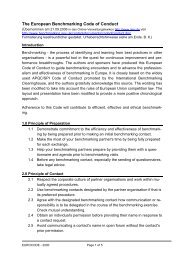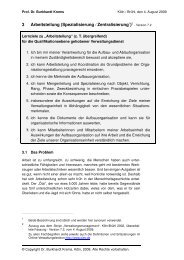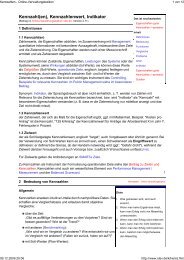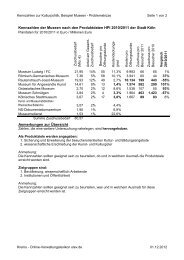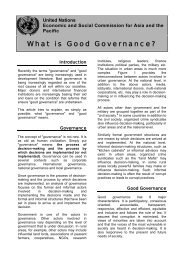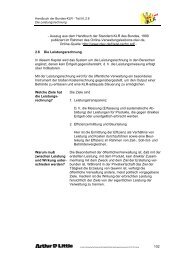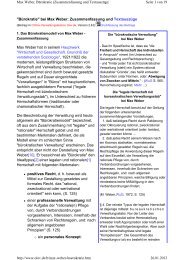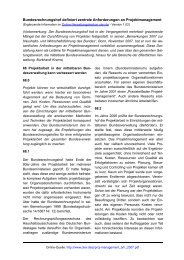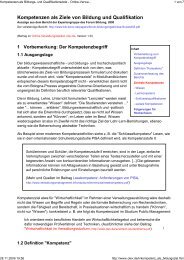Strategy Survival Guide
Strategy Survival Guide
Strategy Survival Guide
Create successful ePaper yourself
Turn your PDF publications into a flip-book with our unique Google optimized e-Paper software.
<strong>Strategy</strong> <strong>Survival</strong> <strong>Guide</strong> Version 2.1<br />
Prime Minister’s <strong>Strategy</strong> Unit<br />
home | strategy development | strategy skills | site index<br />
<strong>Strategy</strong> Skills > Building an Evidence Base<br />
Looking forward - Scenario development<br />
> in practice<br />
Scenarios are used to identify a number of possible alternative futures and, optionally, how we might get<br />
there.<br />
Scenarios are not predictions of the future. They show how different interpretations of the driving forces of<br />
change can lead to different possible futures. By setting up several scenarios a possibility space is created<br />
and it is within this space that the future is likely to unfold.<br />
Scenarios are an important and useful tool in providing a neutral space (the future) for discussion, helping to<br />
build consensus on the key issues facing all stakeholders. They:<br />
• Offer an inclusive and consultative process<br />
• Can reflect the views and challenges facing all stakeholders<br />
• Are a useful tool for organisational learning<br />
• Use stories to describe strategic issues<br />
• Allow detailed analysis to be woven in.<br />
As well as being useful in strategy formulation, they can be used in policy development, conflict resolution,<br />
group learning and to aid rehearsal of management decisions. They can be used at many levels:<br />
• Nations<br />
• Government<br />
• Regions<br />
• Sectors<br />
• Multi-national companies<br />
• Small / Medium enterprises<br />
• Single institutions<br />
• Multi-organisation partnerships.<br />
Scenarios can be used over any time scale, dependent on the primary objective for using them. Scenarios<br />
developed in order to aid team development, for example, are likely to be developed more quickly and have<br />
a shorter shelf life than those used for policy development.<br />
Scenario Development – background<br />
Societal, technological, economical, environmental and political drivers (as well as organisational and<br />
transactional environments) should be identified and used in constructing scenarios. Good scenarios:<br />
• Are based on analysis of change drivers<br />
• Allow critical uncertainties and predetermined elements to be distinguished<br />
• Are compelling and credible<br />
• Are internally logic and consistent.<br />
Scenarios will not:<br />
• Make the decisions<br />
• Begin an unstoppable course of action<br />
• Ever be entirely right (although elements of each scenario could be)<br />
• Persuade everybody.<br />
<strong>Strategy</strong> <strong>Survival</strong> <strong>Guide</strong> – <strong>Strategy</strong> Skills<br />
Page 158



